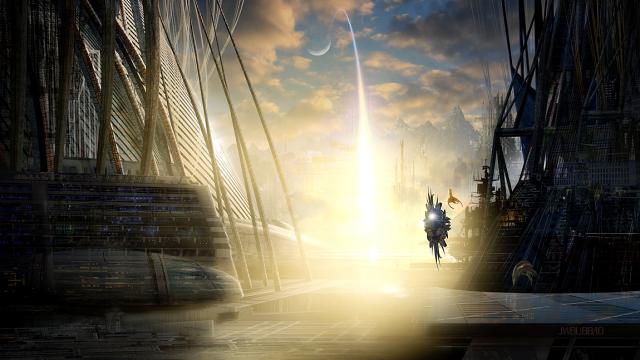Being a science fiction creator is the most amazing adventure — you get to invent whole new worlds, brand new futures, and fantastic technologies, and you get to tell the most incredible stories about them. But it’s also a tough and heartbreaking career path, whether you’re in books, comics, movies or television. Here are 10 things that every brand new science fiction creator ought to know at the start.
Top image: guitfiddle on Deviant Art.
1) You’re still just telling personal stories
This is kind of a big one — no matter who you are or what kind of work you’re doing, you’re still telling a story that’s personally meaningful to you. Because science fiction is so idea-focused and so often driven by technologies or world-changing discoveries, it’s easy to lose sight of that. But not finding the personal story inside your huge alien-invasion narrative is the easiest way to fail. The only way to stand out, and the only way to tell stories that are going to move others, is to figure out what you’re personally connecting to in your work, no matter how clever or widescreen your premise.
2) The things everybody remembers about their favourite stories are never why those stories work
We see this all the time nowadays — once a movie or book becomes a classic, people fixate on that one cool moment or that one clever line of dialogue. (Or sometimes, they fixate on something totally random, that just became a meme for some reason.) But no matter what, that one cool moment is not why people love that story — they love it for everything that sets up the cool moment, and everything else that makes it a great story. And this is why nostalgia is so deadly — because nostalgia tends to focus on the tip of the iceberg rather than the huge frozen juggernaut beneath. So if you spend a lot of time trying to recreate the coolest moment from your favourite TV episode, you’ll miss the stuff that mostly goes unnoticed, which made people care in the first place. Nostalgia always cheats, and the only answer is to try and create your own thing.
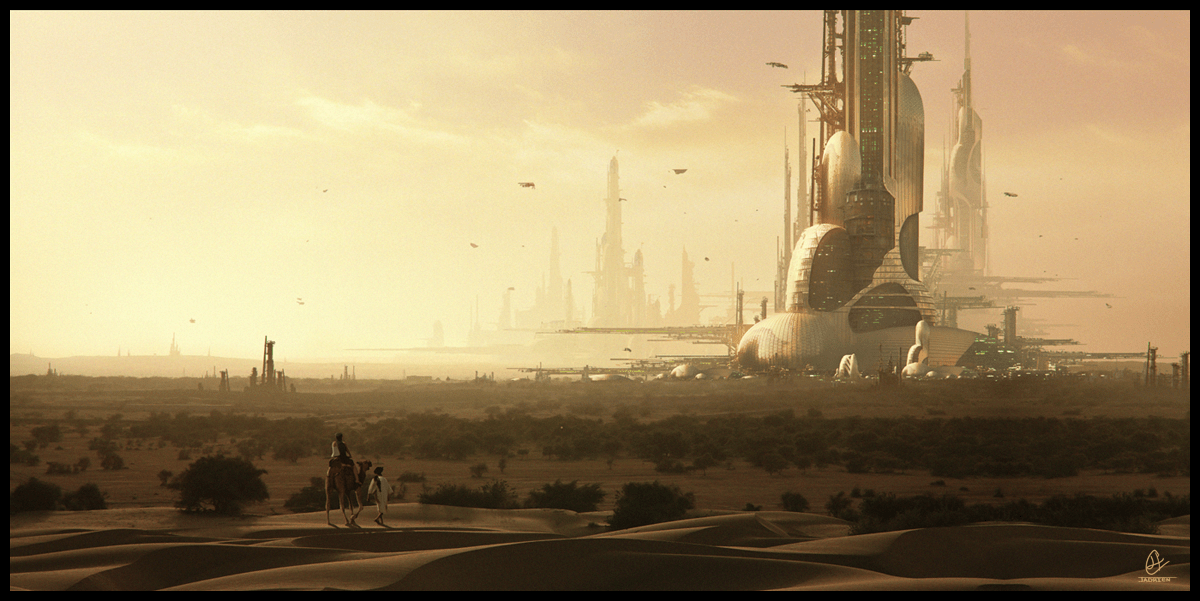
Image via JadrienC/Deviant Art.
3) Science fiction is always about the time when it was created
That means that no matter how clever your extrapolation about the world of 100 years from now is, or no matter how brilliant your tribute to 1950s B-movies is, you’re still commenting on the world of today. And your perceptions of other times and other places will always be coloured by the time and place you’re writing in. (This is especially important to remember for white Americans writing about non-U.S. cultures, past present or future.) Tons of studies have shown that humans have a hard time anticipating futures that are radically different from what we’ve already experienced. This means you need to be on the lookout for unwarranted assumptions in your worldbuilding — but also embrace the fact that you’re really commenting on the here and now, and be somewhat ok with that.
4) Ideas aren’t stories
Basically, you need to understand the difference between a premise and a plot. (This took me years to master, and I’m still not always great at telling the difference.) A premise is “in the future, everybody has a brain chip that regulates emotion.” A plot is “one person’s brain chip malfunctions,” or “someone invents a second brain chip that allows technology, but people who have both chips go insane.” A story that just lays out a basic premise isn’t really a story at all — it’s a pitch, at best. The hard part is often turning the idea into an actual story, and see point #1 above — you need to find what’s speaking to you personally about this premise.
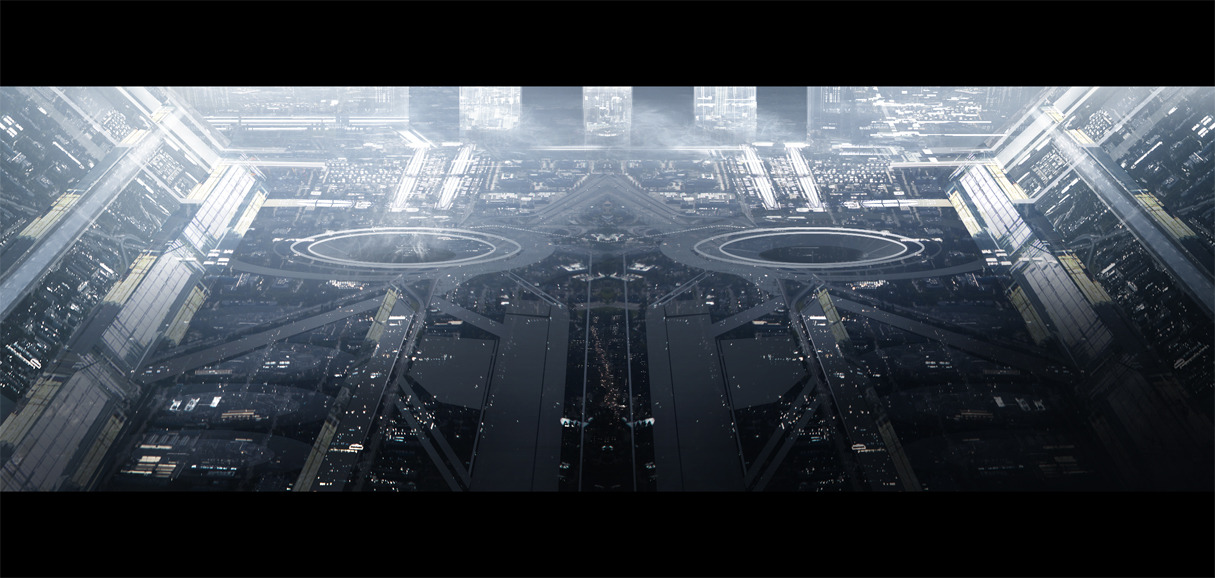
Image: samsonsreaper/CG Hub.
5) Even if you perfectly imitated your heroes, you’d still fail.
Let’s say you manage to write a book that Ursula K. Le Guin could have written, or you figure out how to direct a movie exactly like James Cameron. Leaving aside the impossibility of fully capturing the style of one of the genre’s great originals, you’ll still be kind of screwed. For one thing, even if people may say they’re looking for the next James Cameron, they don’t mean they’re looking for a carbon copy of James Cameron. It will just fall flat. For another, the field is constantly changing, and if you copy your heroes too much, you risk coming up with a perfect rendition of what everybody was looking for 20 years ago. Pay homage to Le Guin all you want — but you also have to work to develop your own style, that’s something new and fresh.
6) Cool story ideas are dime a dozen.
People get paranoid about having their ideas stolen, or being accused of stealing someone else’s idea, or “wasting” an idea, or whatever. But ideas really are as common as dirt, and it’s easy to come up with more. Even cool ideas. Just spend half an hour reading New Scientist, or scanning the front page of the newspaper, or watching people in a public place — story ideas come from everywhere. And they’re mostly worthless. Even if you come up with a clever story idea that would make a Hollywood producer’s ears prick up, it’s still worthless unless you can turn it into something. And that, in turn, requires coming up with a protagonist who’s fascinating and belongs in the middle of that cool idea. Ideas are easy, but stories are freakishly hard.
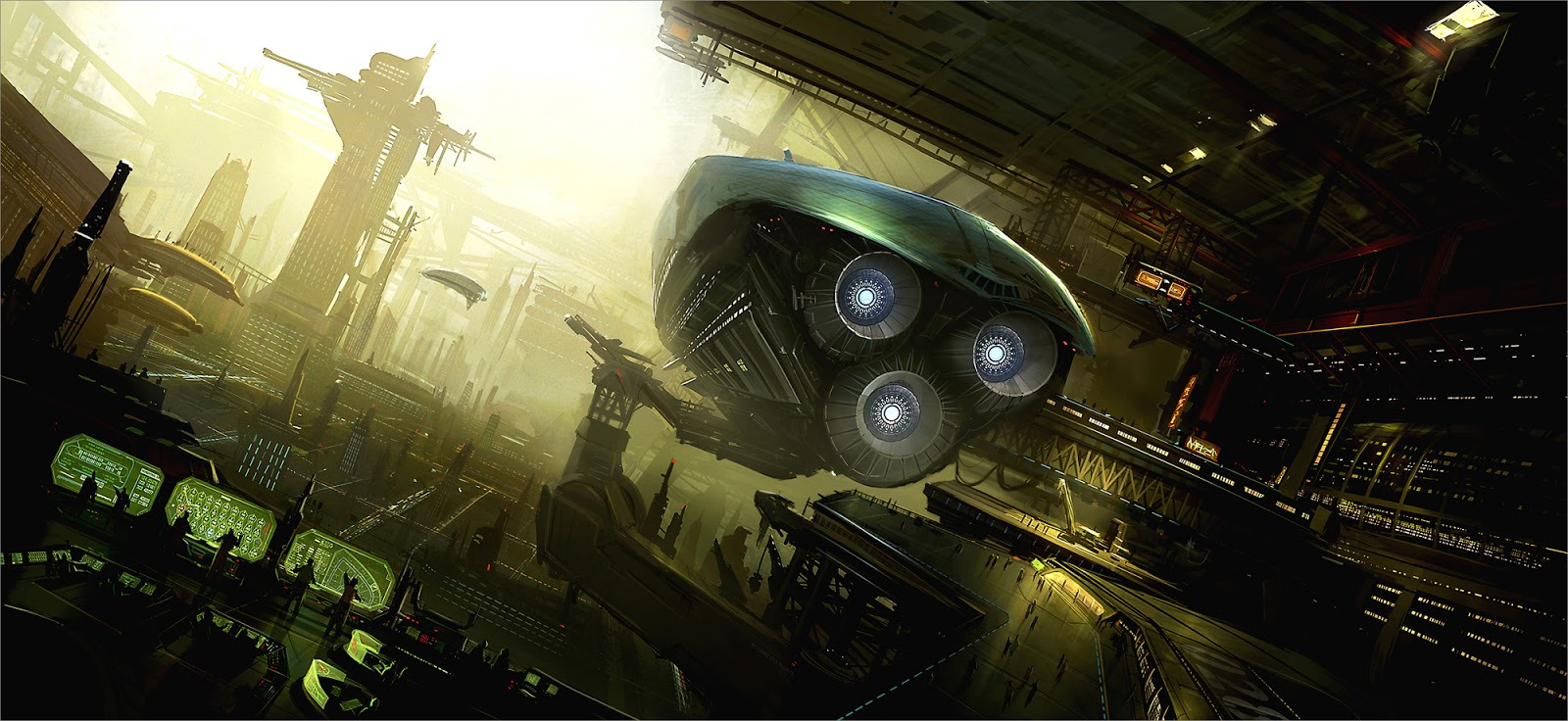
Image by eddiedelrio/CG Hub.
7) Resist the urge to give up on your characters
If your characters aren’t clicking, or if you can’t figure out how to make them go in the direction your plot needs them to go in, that usually means you need to take a step back and think about what they’re really going through and what they would really feel in that situation. It’s tempting to push them into a pat resolution that satisfies your plot needs but doesn’t actually make that much sense for the characters. It’s also tempting to fall into a bleak, “existential” ending where your characters fail, just because you’re annoyed with them and can’t figure out what else to do with them. (And there’s nothing worse than a bleak ending that hasn’t been earned.) The end of your story is not a finish line, and this isn’t a race. Sometimes you need to go back and figure out where you went wrong.
8) Trends are at least half over by the time you know about them
Seriously. Everybody who’s been around for a while has a sob story in which they (or a friend) tried to jump on that hot vampire romance trend, or that super-popular “dystopian teen fiction” trend, and then realised that the trend was already on its last legs. You shouldn’t chase trends anyway, because that’s probably not going to result in work that you’re going to feel as good about in the end. But even if trend-chasing was a good idea, bear in mind there’s a long pipeline for books and an even longer one for movies or TV — the things you see coming out right now represent the trends that are already ending.
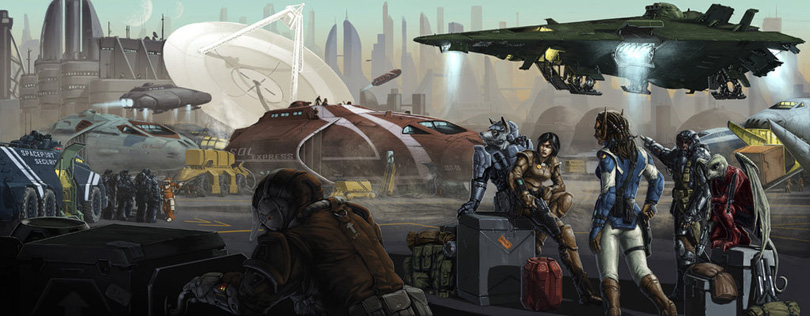
Image: Ben Wootten via Concept Ships
9) Doing your homework is half the battle
Research is a huge part of writing really good science fiction, especially if you’re speculating about future developments. Learn how to talk to scientists about their work — if you seem smart and interested in telling good stories about science, they will often be willing to talk toyou. Also, learn how to read scientific papers and do research. And learn how to do research about other cultures and other times, too — even if you’re not writing about them, it will make your worldbuilding way stronger.
10) You’re the worst judge of your own work
This never really stops being true, for a lot of us. Especially when you’ve just finished something, you often can’t see what’s working. There’s no substitute at all for getting feedback from others, and running your work past professionals as much as you possibly can. Join a critique group or take classes, just to get more feedback on your work. When you wonder why your favourite writer or director has gone downhill since they became a megastar, it’s usually because they stopped getting feedback on their work. But especially when you’re starting out, you need constant abuse to get better at your craft.
